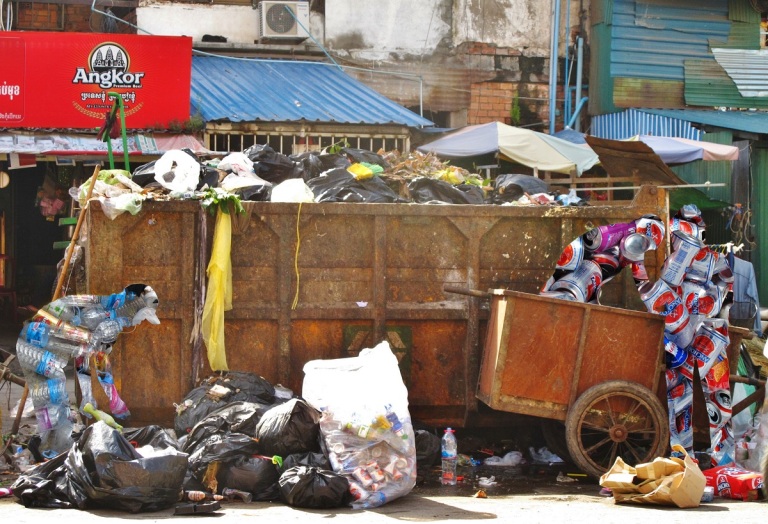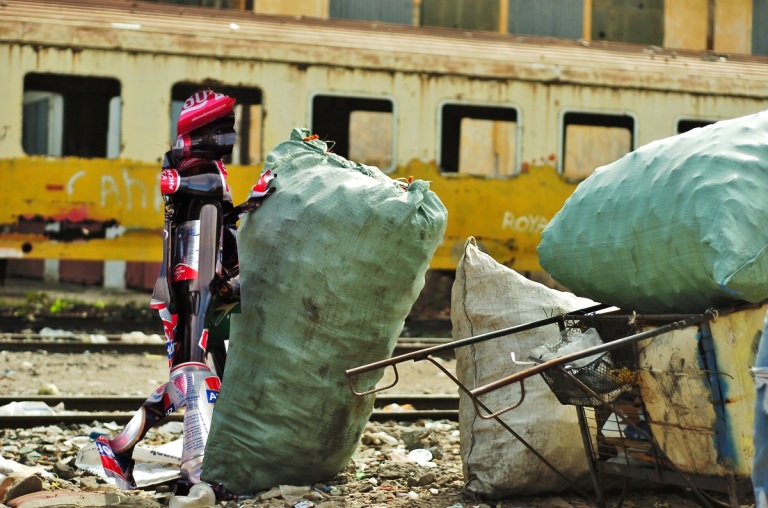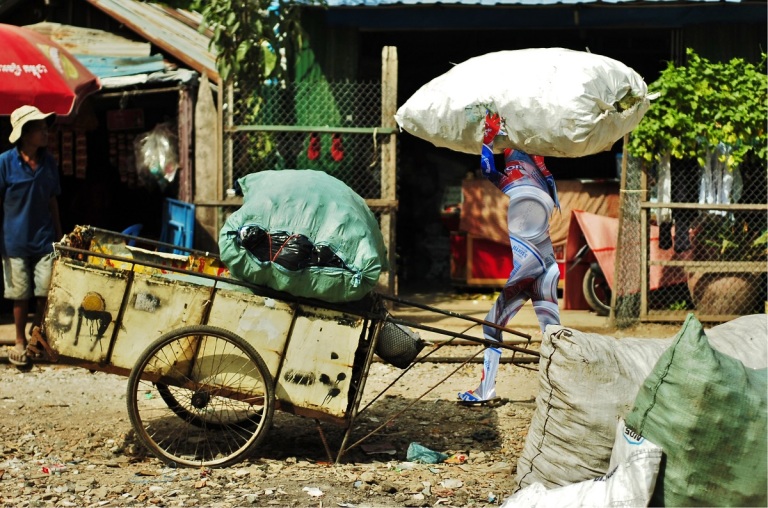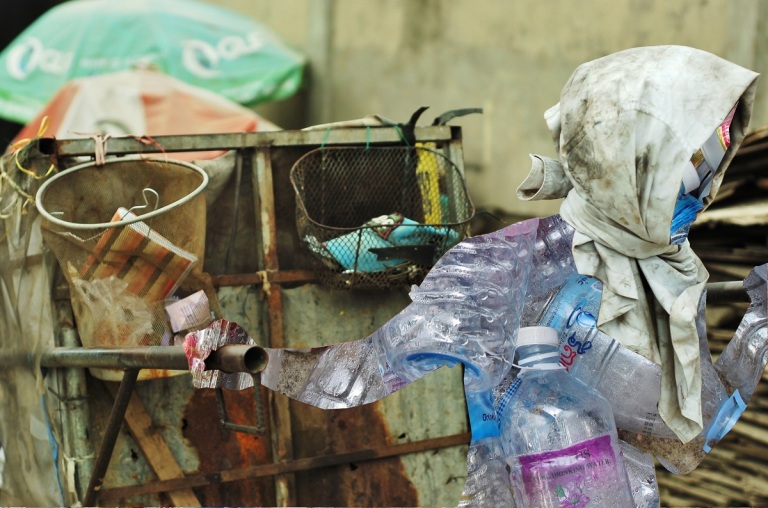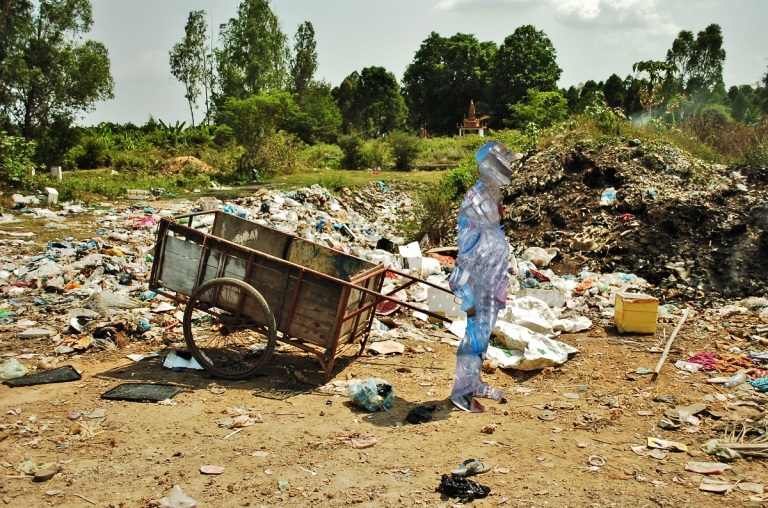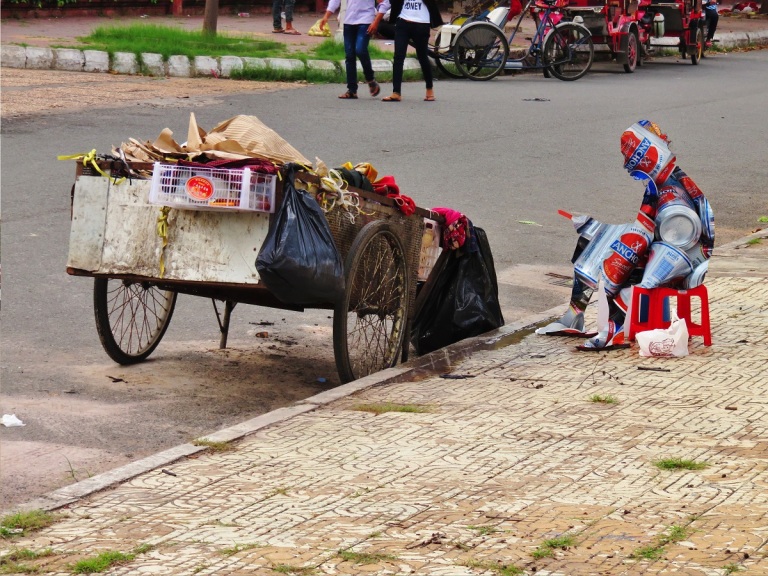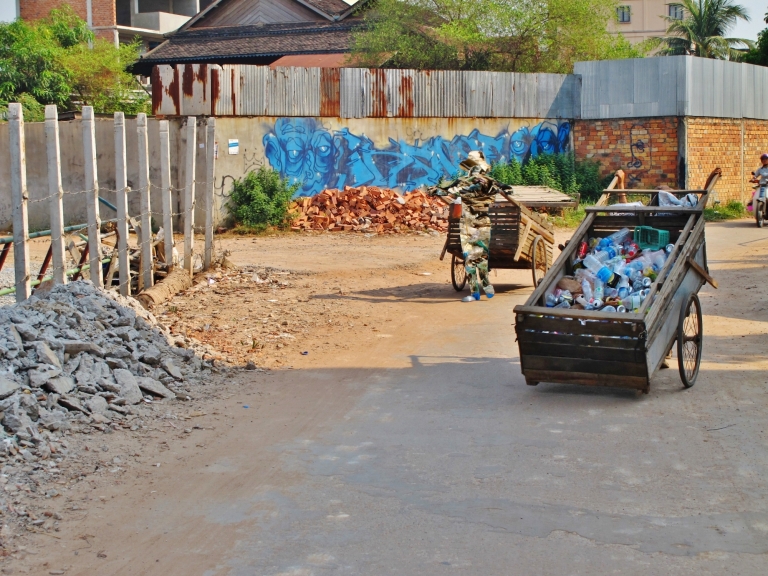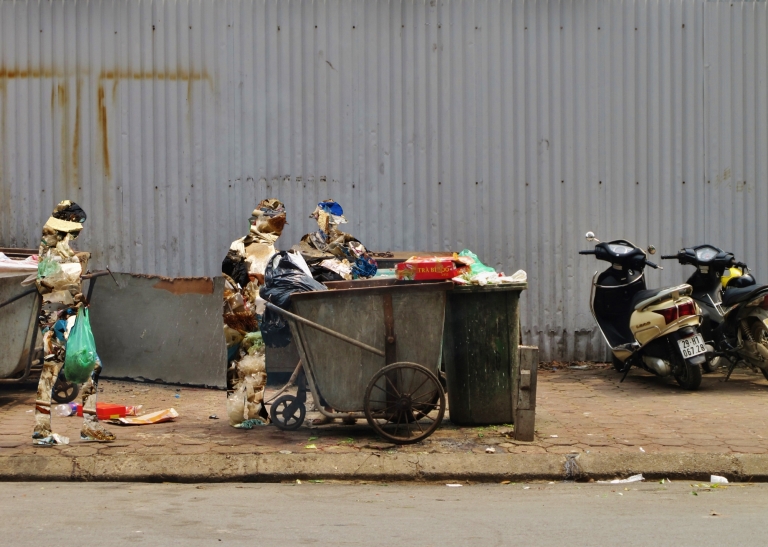This project occupies the space between conceptual photography and photojournalism, being focused on the waste pickers of Southeast Asia. Lacking formal recycling schemes, Asian fast-growing urban centers leave this job to the most underprivileged of society. Roaming around silently on the streets, invisible, searching garbage cans with fragile hygiene conditions and often receiving as low as 10 cents/kg of plastics collected. The rest of society looks upon them as dirty and poor, perhaps as the trash of society, even if they are the only ones working to clean our urban environment.
The photos were taken in Cambodia, Thailand, Vietnam, Malaysia and Myanmar, reflecting on the relationship between the waste pickers and the society around them.
This project is a homage to these invisible soldiers.
Some statistics about the water pickers:
# they receive between 2.5 to 5 USD/day (per family)
# the average payment is 10 cents of dollar per kg of soft plastic and 15 per kg of plastic bottles, 60 cents per kg of metal, 35 cents per kg of tin cans
# some of them live near the dumpsites with inhuman conditions in terms of health and hygiene, even being forced to pay to a landlord for the possibility to collect plastics on the dumpsite (e.g. in Phnom Penh’s dumpsite there are 1000 to 1500 waste pickers)
# some of their children don’t go to school due to discrimination, and access to health care is highly limited
# in places such as Phnom Penh, Cambodia, the dumpsite receives an average of 1600 tons of waste per day but only 15% is recyclable
# in Southeast Asia the use of plastics is overwhelming, for instance with the average Cambodian using more than 2000 plastic bags per year (10 times more than the average in western countries or China)
# according to a nationwide survey conducted last year by the organization ACRA and funded by the EU, in Phnom Penh are used 10 million plastic bags per day, with not only the consequences for the environment (especially rivers where a major part of the trash goes) but also affecting the drainage systems in the city with the clogged drains provoking floods every rainy season
# the majority of the profit of recycling goes to the middlemen, since the whole business consists on a complex network where the waste pickers sell the trash they collect for very low prices to business men who buy in bulk and sell to large scale collectors in each city, who in turn sell to exporters that carry to factories in large urban centers (e.g. in Cambodia there is no recycling factory so all the trash is exported to either Thailand or Vietnam to be processed)

